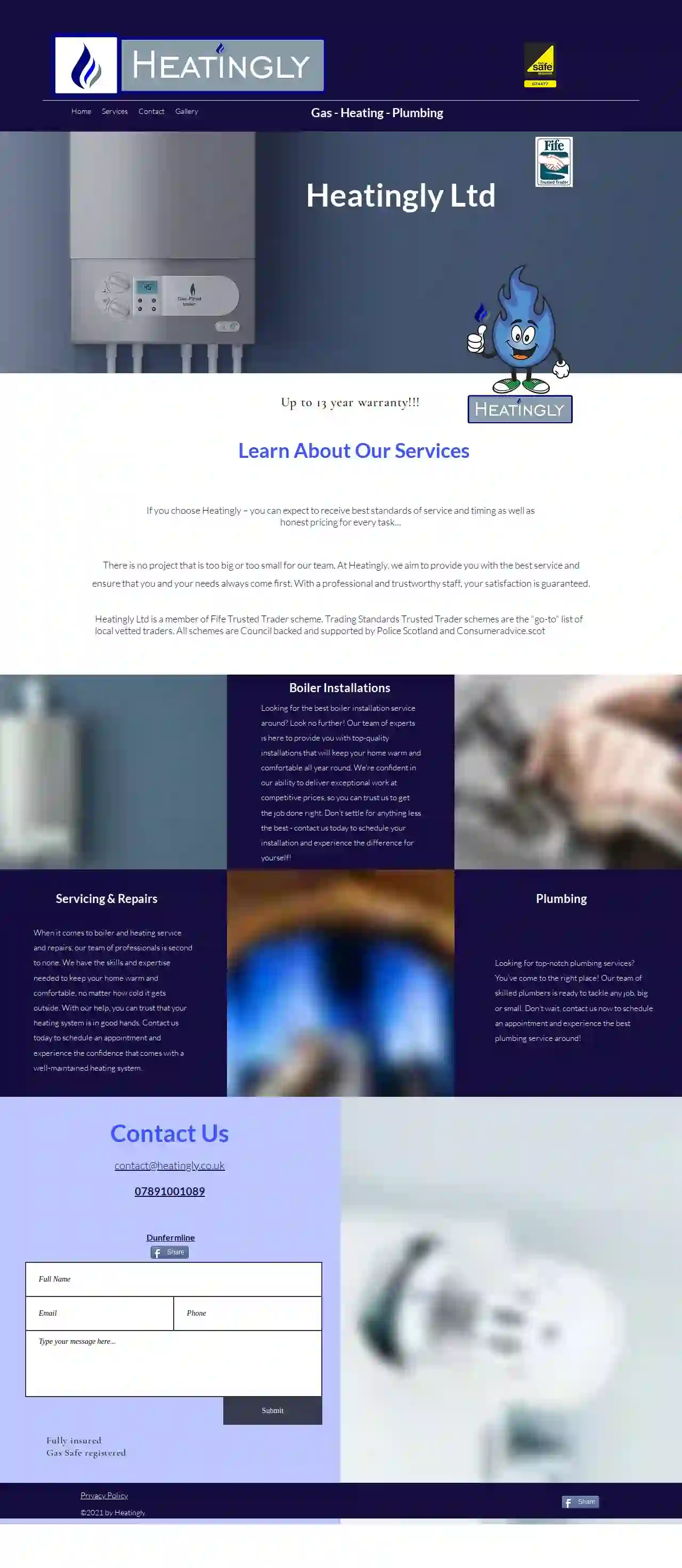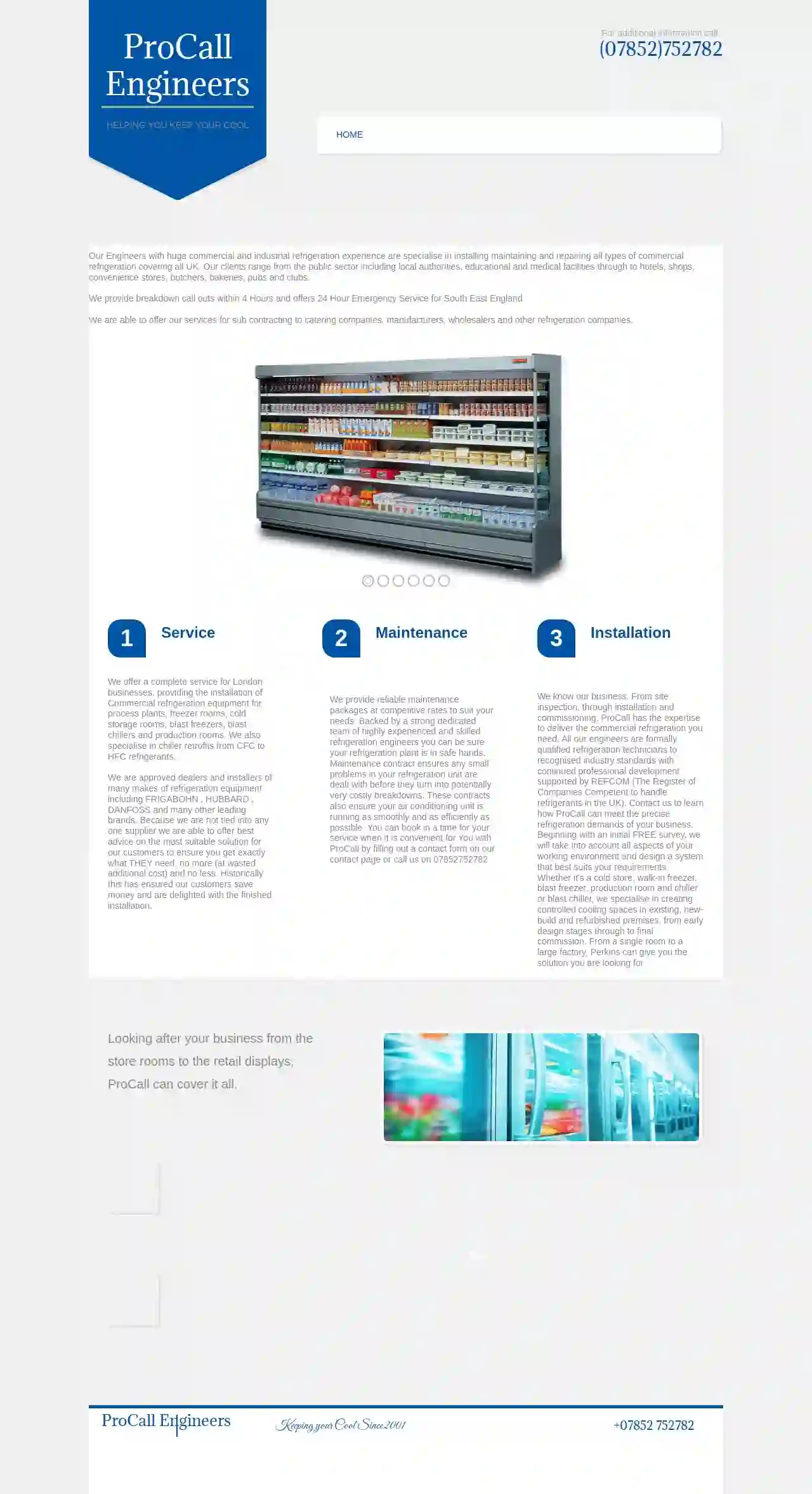Emergency HVAC Newcastle under Lyme
Best Emergency HVAC in Newcastle under Lyme
Get up to 3 Emergency AC Repair quotes for your project today! Compare profiles, reviews, accreditations, portfolio, etc... and choose the best service.

Heatingly Ltd
526 reviewsStone, GBHeatingly Ltd is a family-run business based in Dunfermline, Fife. We are committed to providing our customers with the best possible service and ensuring that their needs always come first. Our team of professional and trustworthy staff is dedicated to delivering high-quality workmanship at competitive prices. We are fully insured and Gas Safe registered, giving you peace of mind that you are in safe hands. We offer a wide range of services, including boiler installations, servicing and repairs, and plumbing. No job is too big or too small for our team. We are proud to be a member of the Fife Trusted Trader scheme, which is a council-backed scheme that vets local traders. This means that you can be confident that you are dealing with a reputable and reliable business. At Heatingly, we believe that warmth delivered expertly installed is our priority. We strive to provide our customers with the best possible experience, from the initial consultation to the final installation. Contact us today to learn more about our services and how we can help keep your home warm and comfortable all year round.
- Services
- Why Us?
- Accreditations
- Gallery
Get Quote- Ga
Gas Co Plumbing & Heating
54 reviewsStone, GB- Services
- Why Us?
Get Quote - Ch
Choice Heating Ltd
55 reviewsTamworth, GB- Services
- Why Us?
- Gallery
Get Quote 
Heatcore Heating Electrical & Air Conditioning
512 reviewsGallan Park, Watling Street, Cannock, WS11 0XG, GBHeatcore Ltd is a leading provider of heating solutions, offering a range of services including air source heat pump design and installation, solar PV design and installation, oil heating, oil tank installation, domestic and commercial gas, electric heating solutions, underfloor heating, and more. With a focus on sustainability, Heatcore Ltd is committed to helping homeowners reduce their carbon emissions and hot water bills. Their award-winning Mixergy tank is a patented top-down heating technology that only heats the water needed for the home, saving energy and money. Heatcore Ltd is also accredited and qualified energy assessors, providing energy certification services throughout the West Midlands. Contact Heatcore Ltd to learn more about their services and how they can help you transition to a more sustainable home.
- Services
- Why Us?
- Accreditations
- Gallery
Get Quote
ProCall Engineers Ltd
1Stone, GBProCall Engineers is a team of experienced commercial and industrial refrigeration specialists dedicated to keeping your business cool. We serve clients across the UK, from the public sector (local authorities, educational and medical facilities) to various industries like hotels, shops, convenience stores, butchers, bakeries, pubs, and clubs. We offer a comprehensive range of services, including installation, maintenance, and repair of all types of commercial refrigeration equipment. Our expertise covers a wide range of systems, from process plants and freezer rooms to cold storage rooms, blast freezers, blast chillers, and production rooms. We also specialize in chiller retrofits, transitioning systems from CFC to HFC refrigerants. As approved dealers and installers for leading brands like FRIGABOHN, HUBBARD, and DANFOSS, we provide unbiased advice to ensure you receive the most suitable solution for your needs. Our commitment to quality and customer satisfaction is reflected in our 24-hour emergency service for South East England and our 4-hour breakdown call-out service across the UK.
- Services
- Why Us?
- Gallery
Get Quote- Mi
Midlands Compressed Air Ltd
51 reviewsLichfield, GB- Services
- Why Us?
Get Quote - Ro
Roger West Ltd
410 reviewsStone, GB- Services
- Why Us?
Get Quote - St
Stafford Gas Man
513 reviewsStafford, GB- Services
- Why Us?
Get Quote - Do
Dodd Group
3.916 reviewsStafford, GB- Services
- Why Us?
Get Quote - St
Stafford Mechanical Services Inc.
4.692 reviewsStafford, GB- Services
- Why Us?
Get Quote
Over 16,895+ HVAC Contractors on our directory
Our HVAC pros operate in Newcastle under Lyme and beyond!
HVACCompaniesHub has curated and vetted Top HVAC Contractors arround Newcastle under Lyme. Find a top & trustworthy contractor today.
Frequently Asked Questions About Emergency HVAC Services
- Turn off the system: Switch off your HVAC system at the thermostat.
- Turn off the power: Locate the circuit breaker for your HVAC system and turn it off.
- Wait: Wait a few minutes for the system to completely power down.
- Restore power: Turn the circuit breaker back on.
- Turn on the system: Switch your HVAC system on at the thermostat.
How do I reset my HVAC system?
How can I prevent future HVAC emergencies?
How long does it take for an emergency HVAC technician to arrive?
What is a dehumidifier, and do I need one?
How do I reset my HVAC system?
- Turn off the system: Switch off your HVAC system at the thermostat.
- Turn off the power: Locate the circuit breaker for your HVAC system and turn it off.
- Wait: Wait at least 5 minutes for the system to completely power down.
- Restore power: Turn the circuit breaker back on.
- Turn on the system: Switch your HVAC system on at the thermostat.